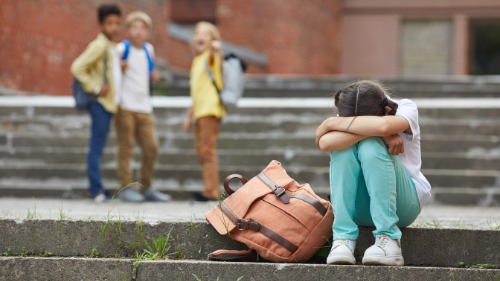Bullying Doesn’t End at School—It Stays in the Mind
Bullying doesn’t stop when the school bell rings. It doesn’t end when a
student leaves the classroom or changes schools. The impact of bullying can
last for years. It can become etched into a person’s self-esteem, their way of
relating to others, and how a child or teenager sees themselves. Because when
someone is humiliated, excluded, or repeatedly harmed, the damage doesn’t fade
with time—it becomes internalized.
Bullying is not “just a part of growing up.” It’s a form of violence.
And its marks can stay silent well into adulthood.
The emotional wound behind bullying
A child who suffers bullying isn’t only dealing with aggressors. They’re
also battling shame, fear, and the painful belief that they’re not enough. They
learn to stay quiet to survive, to avoid drawing attention, to shrink
themselves. They adapt to an emotional logic that imprints deeply: “Better to
stay invisible than to get hurt.”
Over time, these thoughts become beliefs: “I’m weird,” “I’m not worthy,” “No
one will ever accept me.”
From there, social anxiety, insecurity, isolation, low self-esteem, and
sometimes even depression take root. Not every child who is bullied will
develop a disorder—but every child is affected if they don’t receive support
and emotional care.
The silence many victims carry is not forgetfulness—it’s unprocessed trauma.
Timely support can change their story
Adults play a key role. Listening without judgment, validating the child’s
emotions, and being alert to signs like mood changes, isolation, or poor
academic performance. It’s not enough to say “stand up for yourself” or “just
ignore them.” Bullying requires real, emotional—and often
professional—intervention.
Therapy can help heal those wounds.
It rebuilds self-esteem, restores trust, and helps separate identity from
trauma. Because no one deserves to grow up believing their painful experiences
define who they are.
If your child has experienced bullying—or if you notice signs that may point
to it—don’t minimize their feelings. There’s still time to heal. And you can
help them carry that burden with care and support—so they don’t have to carry
it alone.



